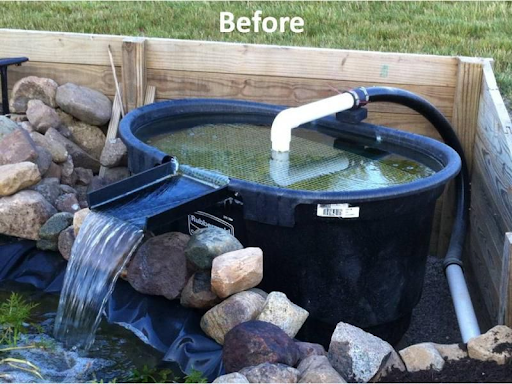A pond filter is an essential component of any garden or backyard pond, helping to maintain clear water and a balanced ecosystem. Whether you have a small decorative pond or a large koi pond, a filtration system ensures water quality by removing debris, excess nutrients, and harmful toxins.
Why Pond Filters Are Important
Ponds naturally accumulate organic waste from fish, plants, and external sources like leaves and dust. Without proper filtration, this buildup can lead to algae growth, murky water, and unhealthy conditions for aquatic life. A well-functioning filter helps:
- Remove debris and particles
- Prevent excessive algae growth
- Maintain oxygen levels for fish and plants
- Reduce harmful ammonia and nitrates
Types of Pond Filters
1. Mechanical Filters
Mechanical filtration physically removes dirt, leaves, and other debris by passing water through a filter medium such as sponges or pads. These filters need regular cleaning to prevent clogging and maintain efficiency.
2. Biological Filters
Biological filters use beneficial bacteria to break down harmful substances like ammonia and nitrites, converting them into less toxic compounds. These filters create a stable environment for fish and plants by promoting natural biological processes.
3. UV Clarifiers
Ultraviolet (UV) clarifiers work alongside other filters to control algae growth by exposing pond water to UV light, which destroys algae cells and prevents green water.
4. Combination Filters
Many modern pond filters combine mechanical and biological filtration, sometimes integrating a UV clarifier for optimal water quality. These all-in-one systems are convenient and effective for maintaining a healthy pond.
Choosing the Right Pond Filter
When selecting a filter, consider the following factors:
- Pond size – Larger ponds require more powerful filtration.
- Fish population – More fish produce more waste, increasing filtration needs.
- Water flow rate – Ensure the filter can handle the volume of water in your pond.
- Maintenance requirements – Some filters need more frequent cleaning than others.
Maintaining Your Pond Filter
To keep your filter working efficiently:
- Clean mechanical filter media regularly.
- Check for clogs and rinse out debris.
- Avoid over-cleaning biological filters to preserve beneficial bacteria.
- Replace UV bulbs in clarifiers as needed.
Conclusion
A reliable pond filter is key to maintaining clean, healthy water and a thriving aquatic environment. By understanding the different types of filters and their functions, you can choose the best system for your pond and enjoy a beautiful, balanced ecosystem for years to come.


